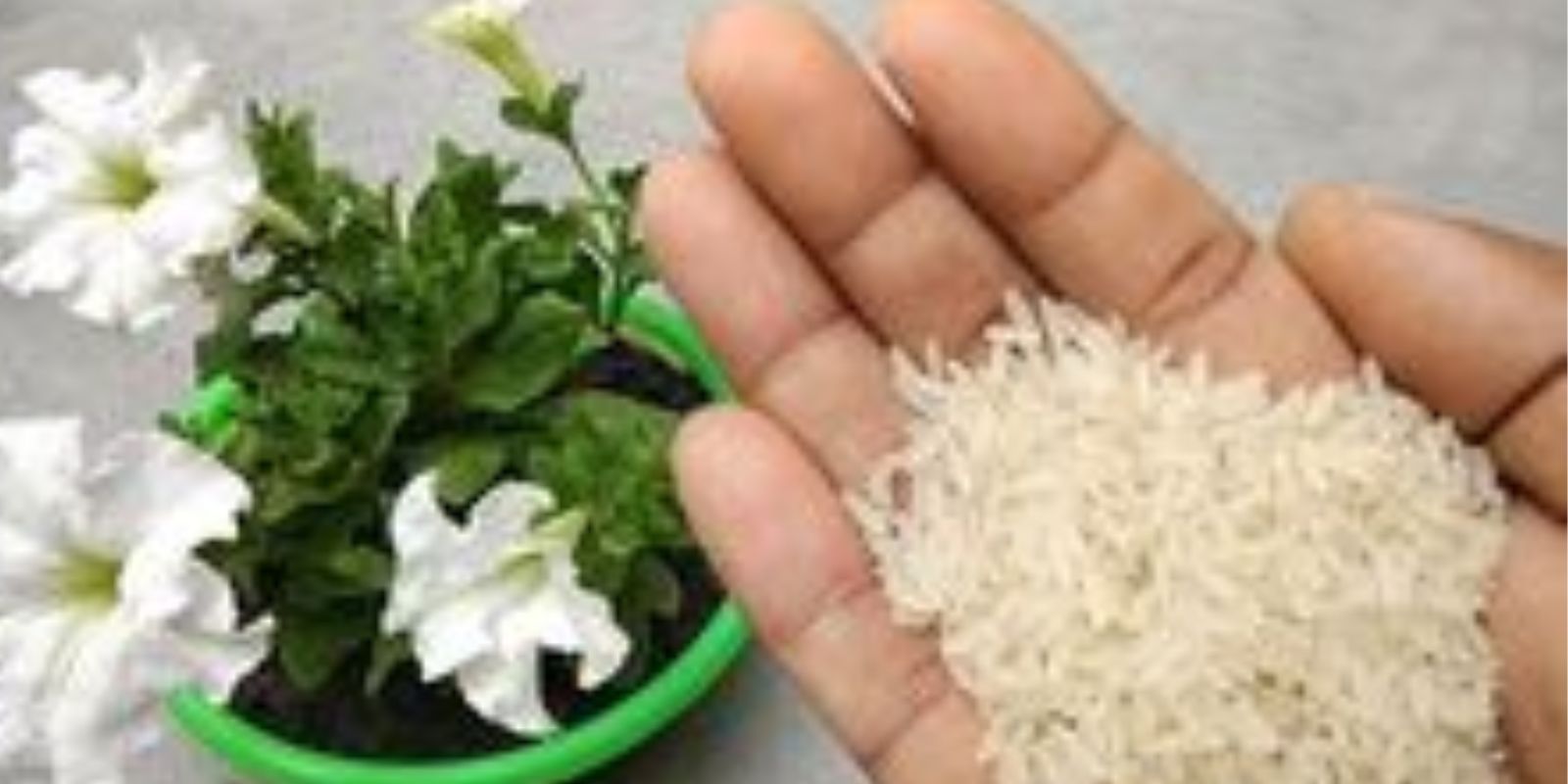Introduction
In the world of gardening, innovative solutions often arise from everyday items found in the kitchen. One such item, often overlooked, is the water used to rinse rice before cooking. This seemingly simple liquid holds surprising benefits for plant growth, containing valuable nutrients that can nourish plants and improve soil health. By converting washed rice water into a liquid fertilizer, gardeners can effectively recycle kitchen waste while promoting sustainable gardening practices. This article explores the science behind using rice water as a plant tonic, provides step-by-step instructions on how to prepare and apply it, and highlights its potential benefits for gardeners of all levels.
Understanding Washed Rice Water
Washed rice water refers to the water that remains after rinsing raw rice prior to cooking. This water contains soluble nutrients such as starches, vitamins, and minerals that leach from the rice grains during rinsing. These nutrients, though diluted, can serve as a mild and natural fertilizer when applied to plants.
The Science Behind Rice Water as a Fertilizer
Research indicates that washed rice water contains beneficial components that can support plant growth. The nutrients in rice water, including carbohydrates, amino acids, and trace minerals, can contribute to enhanced nutrient uptake and stimulate microbial activity in the soil. This natural boost can improve soil structure, promote root development, and encourage robust plant growth.
Steps to Convert Washed Rice Water into a Plant Tonic
- Collecting Washed Rice Water:
After rinsing raw rice thoroughly, collect the water used for washing in a clean container. Ensure the water is free from soap or other contaminants that could harm plants. - Diluting the Rice Water:
To avoid potential issues with excessive salt or nutrient concentration, dilute the collected rice water with an equal amount of fresh water. This 1:1 dilution ratio helps ensure the solution is gentle enough for plants while still providing beneficial nutrients. - Applying the Rice Water:
Use the diluted rice water to water your plants as you would with regular water. Apply the solution evenly to the soil around the base of the plants, taking care not to oversaturate. - Monitoring Plant Response:
Observe your plants over time for signs of improved growth and health. Look for indicators such as greener foliage, increased flowering or fruiting, and overall vigor. - Repeat Application:
Incorporate washed rice water into your regular plant care routine. Apply the fertilizer every 2-4 weeks during the growing season to provide consistent nutrients for sustained plant development.
Benefits of Using Washed Rice Water
- Cost-Effective and Sustainable: Utilizing washed rice water allows gardeners to repurpose kitchen waste into a valuable resource for plant nutrition, reducing the need for store-bought fertilizers.
- Improves Soil Health: The nutrients in rice water contribute to soil fertility and microbial activity, enhancing soil structure and nutrient availability for plants.
- Promotes Eco-Friendly Gardening: By adopting natural fertilization methods like rice water, gardeners support environmentally friendly practices that minimize chemical inputs and reduce environmental impact.
Additional Tips for Using Rice Water in Gardening
- Adjust Dilution as Needed: Depending on your plants’ sensitivity and soil conditions, you may adjust the dilution ratio of rice water to ensure optimal plant health.
- Combine with Organic Practices: Integrate washed rice water with other organic gardening techniques such as composting and mulching to create a holistic approach to plant care.
- Monitor Soil pH: Regularly test soil pH levels to ensure that repeated use of rice water does not alter the soil’s acidity or alkalinity beyond optimal ranges for your plants.
Conclusion
Harnessing the power of washed rice water as a plant tonic represents a simple yet effective approach to enhancing plant growth and soil health. By incorporating this natural fertilizer into your gardening routine, you not only nurture healthier plants but also contribute to sustainable gardening practices. Experiment with washed rice water in your garden today and discover firsthand the benefits of this eco-friendly and cost-effective gardening technique. Embrace the opportunity to recycle kitchen waste into a valuable resource for plant nutrition, and watch your garden thrive with renewed vitality and vigor.

